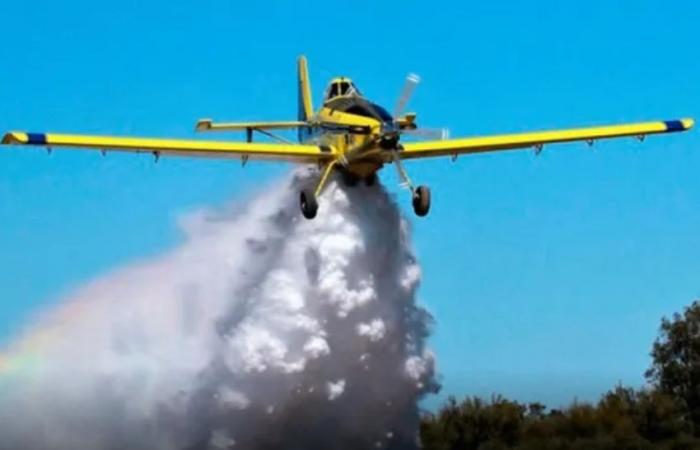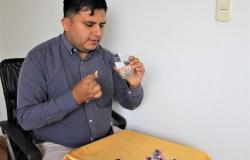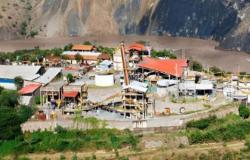The Government of Santa Fe announced this Saturday the news that the bidding process began to buy a moisturizing plane, with the aim of fighting forest fires. This will be the first aircraft of the province to fulfill this function and, as detailed will be used for large and small foci.
For that, an expected budget of 5,500 million pesos for its purchase was allocated, but it remains to know what the offers presented by the different companies interested in participating in the tender, something that will be known only on May 15 at noon.
In this regard, the Secretary of Civil Protection of Santa Fe, Marcos ESCAJADILLO, said: “It will be a very important element in the fight against fires, especially in areas of difficult access or that have an extension that hinders the operational capacity of forest brigades.”
Meanwhile, this aircraft will have very specific technical characteristics such as TurboHélice monomotor; monoplane, low wing; metal; Tandem biplaza; hydrant; amphibian (with pontones equipped with wheel -eyed train); and with a hopper capacity not less than 3,000 liters.
As for the engine and propeller, a turboheric engine is required of no less than 1,600 SHP and a five-blade metal propeller, constant speed, reversible step and with Shot-Speened treatment. In addition, the aircraft will be high -visibility yellow with blue side lines.
Capacities
In line with its main objective, the new hydrant aircraft will have the ability to combat large and small fires, not only as an initial attack but also for extended attack tasks and support for land equipment.
You can also operate from small airfields, remote landing clues, not prepared, dirt roads and with a minimal infrastructure. To do this, you can take off in less than 10 minutes from the application for operation, operate on a ramp next to the water and land and extract water from lakes, lagoons, rivers and reservoirs.
ESCAJADILLO explained that the hydrant aircraft “operating its water capacity or the product used in the fire spotlights, decreases the time and exposure of forest brigades to extinguish fire”, so “it must be part of an organized and coordinated work scheme that will determine the moment in which it is used, taking into account the logistic conditions so that it can function properly and the weather conditions, especially of the wind.
On the other hand, the full recharge capacity will be in no more than 20 seconds in aquatic operation and in no more than 10 minutes in terrestrial operation. It will have a multi -purpose capacity, good maneuverability and low operating cost.
Performance
The aircraft takeoff distance will not be greater than 2,300 feet with maximum take -off weight, the ascent regime not less than 800 feet per minute with maximum take -off weight, the cruise speed not less than 170 knots and the reach in economic cruise not less than 1,200 km.
It must have an autonomy not less than 3 hours, working speed between 100 and 110 knots, loss speed with retracted flaps not greater than 95 knots at maximum takeoff weight, loss speed with extended flaps not greater than 85 knots at maximum landing weight and loss speed in landing loss without greater than 65 knots.
Equipment
Finally, the ship will have amphibious floats; reinforced cabin structure; airbag system; air conditioning/heating; LED luminaire; Mermaid – Megaphone; Computerized Fire Gate System of the last generation; programmable fire gate; Flight, motor and instrument panel commands for both positions; Audio and GPS/COM/ELT Panel.
In the same way, it will have safe functions against rays; manual cancellation of fuel control; Motor fire detection system; and 3 -inch water loading.






